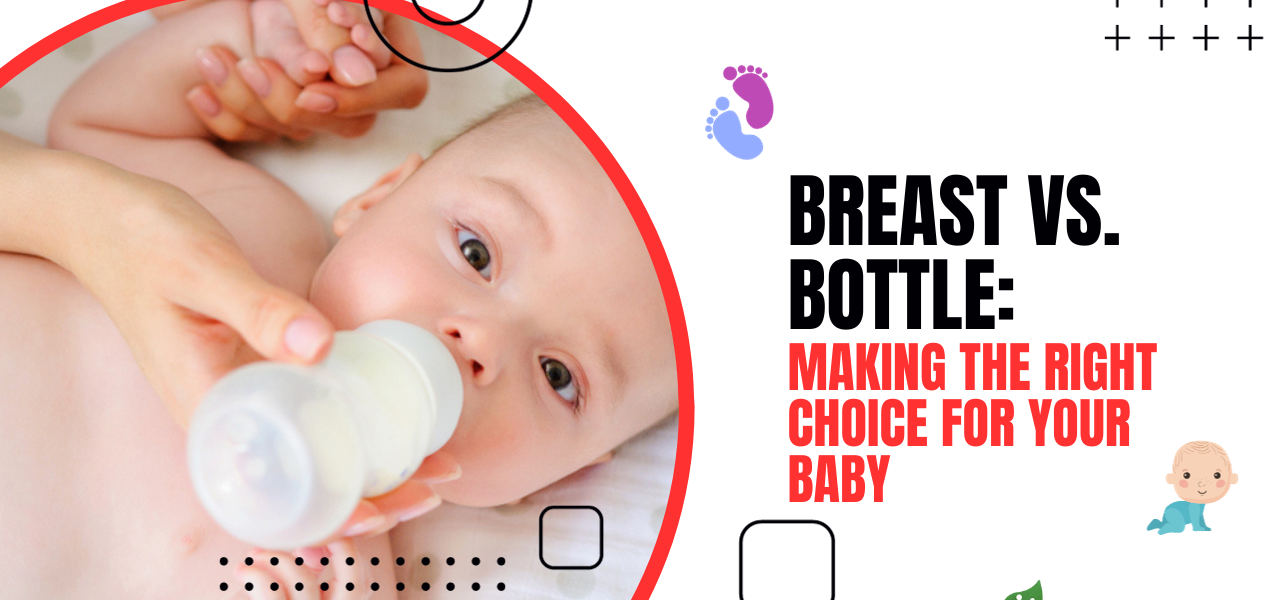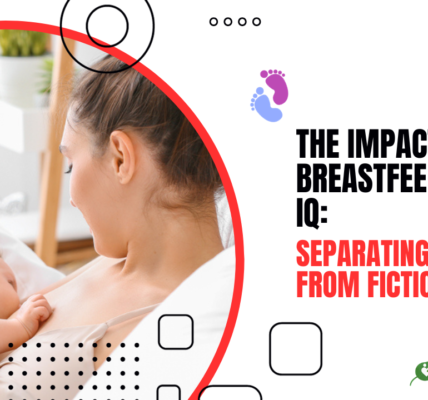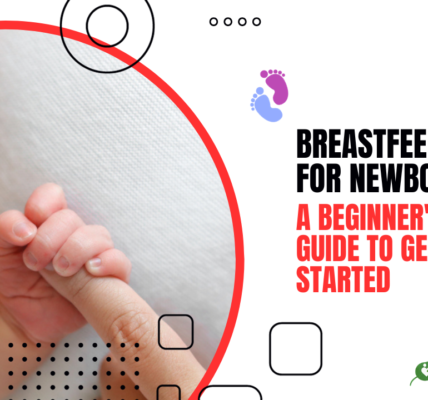Breast vs. Bottle: Making the Right Choice for Your Baby
The journey of parenthood is filled with countless decisions, and one of the most significant ones you’ll make is whether to choose in between breastfeeding vs bottle feeding your baby. It’s a choice that can have a profound impact on your child’s health, development, and overall well-being. In this comprehensive guide, we’ll explore the pros and cons of breast and bottle feeding to help you make an informed decision.
The Benefits of Breastfeeding
Breastfeeding is often hailed as the gold standard of infant nutrition, and for good reason. Here are some of the main benefits of breastfeeding:
1. Optimal Nutrition
Breast milk is a perfect blend of nutrients, antibodies, and enzymes tailored to your baby’s specific needs. It provides essential vitamins, minerals, and immune-boosting factors.
2. Immune System Support
Breast milk contains antibodies that help protect your baby from various infections and illnesses. It can reduce the risk of respiratory infections, ear infections, and more.
3. Bonding and Comfort
Breastfeeding creates a strong emotional bond between you and your baby. The physical closeness and skin-to-skin contact promote a sense of security.
4. Convenience
Breast milk is readily available, always at the right temperature, and doesn’t require preparation or cleanup.
5. Lower Cost
Breastfeeding is cost-effective, as it eliminates the need to purchase formula. It can save a significant amount of money over time.
The Benefits of Bottle Feeding
While breastfeeding offers numerous advantages, bottle feeding also has its merits. Here are some benefits of choosing formula feeding:
1. Flexibility
Bottle feeding provides flexibility, allowing other caregivers to feed your baby. This can be especially helpful for working parents.
2. Predictable Schedules
Formula feeding allows you to know exactly how much your baby is consuming, making it easier to establish feeding schedules.
3. Less Dependency
Formula feeding means you aren’t the sole provider of nourishment, which can offer more freedom and opportunities for self-care.
4. Potential for Bonding
Formula feeding also provides an opportunity for other family members to bond with the baby during feedings.
5. No Dietary Restrictions
With formula feeding, you aren’t restricted by your own diet, meaning you have more dietary freedom.
Making the Right Choice in between Breastfeeding vs Bottle feeding
The decision to choose in breastfeeding vs bottle feeding is a personal one and should be based on what works best for you, your baby, and your family. Consider the following factors to help you make an informed choice:
1. Lifestyle
Evaluate your daily routine, work schedule, and support system. This can influence your ability to breastfeed or formula feed.
2. Health Considerations
Discuss any health concerns with your healthcare provider. Some medical conditions may impact your choice.
3. Personal Comfort
Consider your own comfort and well-being. It’s essential to choose an option that you’re comfortable with.
4. Support Network
Reach out to family and friends for advice and assistance. A strong support network can make a notable difference.
Frequently Asked Questions
1. Is breastfeeding always the best option?
Ans 1: Breastfeeding offers numerous benefits, but it may not be the best option for everyone. It’s essential to consider your unique circumstances and make an informed choice.
2. Can I combine breast and bottle feeding?
Ans 2: Yes, some parents choose to combine breastfeeding and formula feeding, which is known as mixed feeding. This offers flexibility and can be a suitable option for some families.
3. How do I choose the right formula for my baby?
Ans 3: Selecting the right formula depends on your baby’s age, dietary needs, and any specific recommendations from your healthcare provider.
4. What if I can’t breastfeed due to medical reasons?
Ans 4: If you’re unable to breastfeed due to medical reasons, formula feeding is a suitable alternative. Discuss your situation with your healthcare provider for guidance.
5. How can I ensure a strong bond with my baby if I bottle-feed?
Ans 5: You can still foster a strong emotional bond with your baby through bottle-feeding. Ensure that feedings are nurturing and focused on bonding.
6. Can I pump and bottle-feed breast milk?
Ans 6: Yes, many mothers choose to pump and bottle-feed breast milk, allowing them to share feeding responsibilities with other caregivers.
7. What’s the cost difference between breastfeeding and formula feeding?
Ans 7: Breastfeeding is generally more cost-effective, as it doesn’t require the purchase of formula. Formula feeding can be a significant expense over time.
8. Does breastfeeding make it easier to lose post-pregnancy weight?
Ans 8: Breastfeeding can help some mothers lose post-pregnancy weight, as it burns extra calories. However, weight loss experiences vary.
9. Can I breastfeed if I return to work?
Ans 9: Yes, you can continue breastfeeding when you return to work. Many workplaces provide accommodations for nursing mothers, and pumping is an option.
10. What’s the best way to ensure my baby’s well-being?
Ans 10: The best way to ensure your baby’s well-being is to make the choice that aligns with your family’s needs and circumstances. Both breast and bottle feeding can be excellent options.
Final Thoughts
The decision to choose in between breastfeeding vs bottle feeding is a significant one, but there’s no one-size-fits-all answer. What’s most important is that you make the choice that supports your baby’s health and your well-being. No matter which path you choose, remember that a loving and nurturing environment is the most crucial factor for your baby’s growth and development.
For additional parenting insights and advice, visit Parentology for a wealth of resources on parenting, child care, and more.





